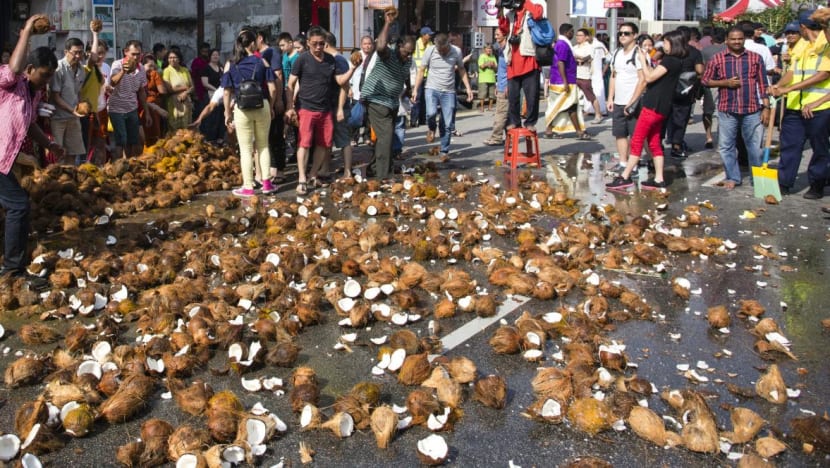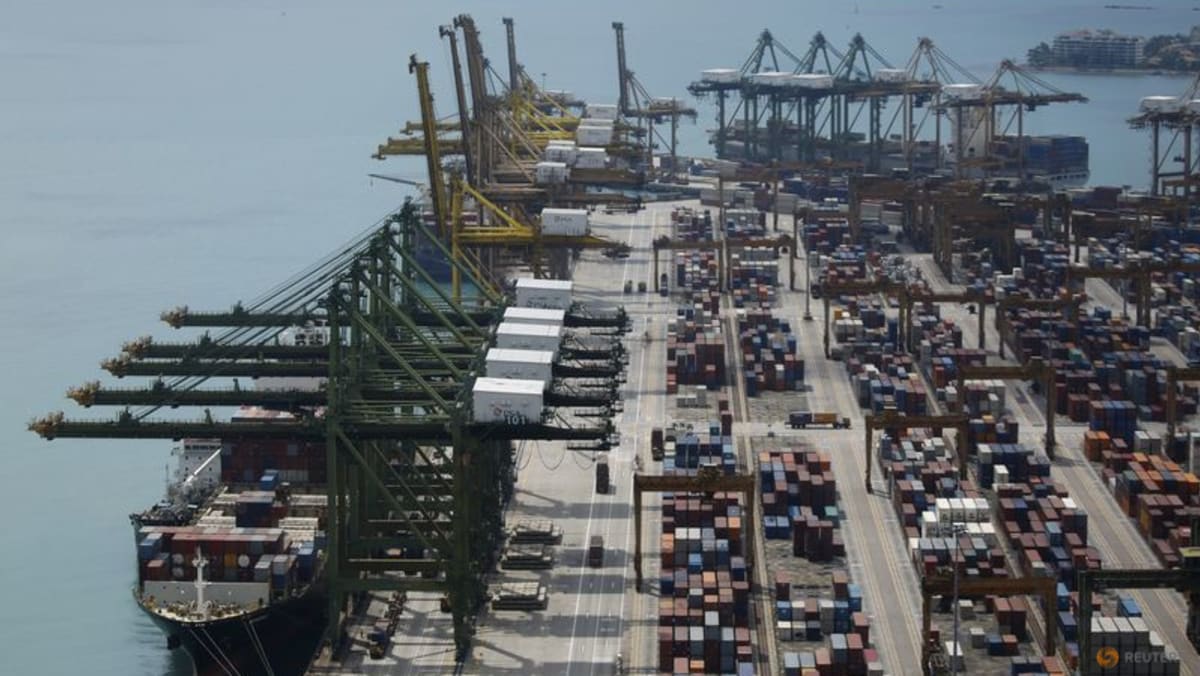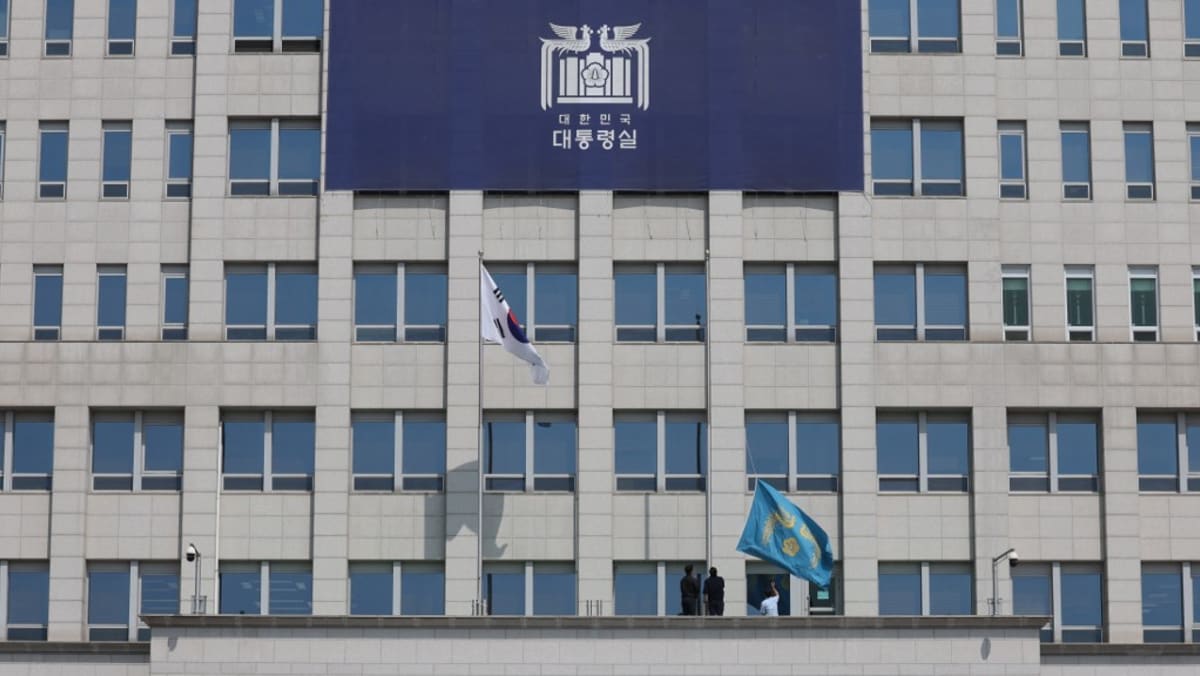PENANG: Coconut prices have surged in Malaysia amid a shortage caused by unfavourable weather, prompting state and community leaders to urge Thaipusam participants to break fewer coconuts during the colourful Hindu festival this month.
Batu Caves Hindu temple committee chairman R Nadarajah said he would personally advise devotees to break only one coconut, reported news outlet the Malay Mail on Sunday (Feb 2).
“As long as you do it with genuine devotion, the number of coconuts doesn’t matter,” he reportedly said.
Thaipusam is a public holiday in Malaysia and falls on Feb 11 this year. It is dedicated to Lord Murugan, and the breaking of coconuts is a cleansing ritual and symbolises the surrender of one’s ego.
Penang chief minister Chow Kon Yeow and the Consumers’ Association of Penang have issued similar calls.
“Devotees should be more economical so their use of coconuts on Thaipusam does not affect food security for the masses,” said Chow at a welfare group’s Chinese New Year event on Friday.
NV Subbarow, education officer of the Consumers’ Association of Penang, urged devotees on Jan 23 to break fewer coconuts “due to a shortage of coconuts which will result in even pricier coconuts this year”.
Many participants, who include members of the Chinese community, “mistakenly think that the more coconuts they break, the more luck is showered upon them”, he said in a statement on the association's website.
Malaysian coconuts now cost up to RM3.90 (US$0.88) each, compared to RM2.60 previously, he told the New Straits Times on Saturday. Those from Indonesia cost up to RM3 each, he said.
The shortage of coconuts has been making headlines in Malaysia due to higher demand during Chinese New Year and Thaipusum celebrations, as well as the fasting month of Ramadan – expected to begin on either Feb 28 or Mar 1 – and Hari Raya Puasa.
 People smashing coconuts before a chariot procession during the Hindu festival of Thaipusam in Georgetown, Penang. The celebration is a multi-ethnic affair. (Photo: iStock)
People smashing coconuts before a chariot procession during the Hindu festival of Thaipusam in Georgetown, Penang. The celebration is a multi-ethnic affair. (Photo: iStock)
EXTREME WEATHER CAUSING LOWER YIELDS?
According to Subbarow, producers in Perak began reporting lower yields in May last year as their trees bore fewer fruit. Extreme weather is believed to be the cause, he said.
One of northern peninsula Malaysia’s biggest coconut suppliers, Anba Coconut Trading, said yields at its leased plantations have dropped by 80 to 90 per cent.
From 10,000 to 15,000 coconuts every two days previously, the company now gets 2,000 to 2,500 coconuts, Anba’s owner P Sarasvathy told news agency Bernama. There are about 420,000 trees at her plantations.
“The trees appear healthy, yet the yield has significantly decreased. I’m at a loss as it has never occurred before,” Sarasvathy told Bernama.
Malaysia’s Ministry of Agriculture and Food Security said last month it would step up imports to 500 tonnes per month from February by buying more mature coconuts from Indonesia.
Imports from Indonesia had already increased to 320 tonnes in December 2024, up from 180 tonnes previously, the Malay Mail reported.
But the increased demand for coconuts has caused a shortage in Indonesia’s own coconut processing industry.
In December, the Indonesian Coconut Processing Industry Association called on the government to implement policies such as export restrictions, quotas or subsidies for the industry, news site the Jakarta Globe reported.
The association said Indonesia’s coconut processors were operating at 30 per cent capacity due to the high cost of raw materials, and that prices of coconuts at local markets had increased to about 15,000 rupiah (US$0.92) each, up from about 6,000 rupiah previously.















.png?itok=erLSagvf)






























